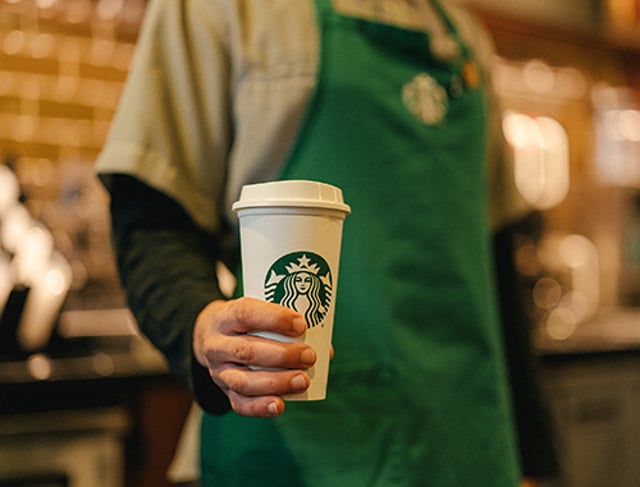Starbucks ups sustainability commitment; pledges to be ‘resource-positive’
Starbucks is launching an ambitious initiative to give more than it takes from the planet.
In a public letter, Starbucks CEO Kevin Johnson announced a multi-decade commitment and aspiration to becoming a resource-positive company by storing more carbon than it emits, eliminating waste and providing more clean, freshwater than it uses. The announcement included science-based preliminary targets for the reduction of carbon emissions, water use and waste by 2030.
“This aspiration is grounded in Starbucks mission,” Johnson said. “By embracing a longer-term economic, equitable and planetary value for our company, we will create greater value for all stakeholders.”
Starbucks’ new commitment was praised by conservation advocates.
“As the global climate crisis is fueling a new set of challenges for the planet, Starbucks has set an ambitious vision to give more than they take from our planet’s finite natural resources,” said Sheila Bonini, senior VP, private sector engagement, World Wildlife Fund. “This is exactly the kind of leadership we need to see from businesses—an opportunity to invest in their own future while making their global customer base a partner in this sustainability journey.”
By 2030, Starbucks will target:
- A 50% reduction in carbon emissions in Starbucks direct operations and supply chain;
- A 50% reduction of water withdrawal for direct operations and coffee production will be conserved or replenished with a focus on communities and basins with high water risk; and
- A 50% reduction in waste sent to landfill from stores and manufacturing, driven by a broader shift toward a circular economy. To underscore its commitment to the circular economy, Starbucks is pleased to sign the Ellen MacArthur Foundation’s New Plastics Economy Global Commitment.
To achieve its 2030 targets, Starbucks plans to:
- Expand plant-based options, migrating toward a more environmentally friendly menu;
- Shift from single-use to reusable packaging;
- Invest in innovative and regenerative agricultural practices, reforestation, forest conservation and water replenishment in Starbucks supply chain;
- Invest in better ways to manage waste, both in Starbucks stores and in its communities, to ensure more reuse, recycling and elimination of food waste; and
- Innovating to develop more eco-friendly stores, operations, manufacturing and delivery.
Johnson also outlined three preliminary targets for 2030:
Starbucks plans formalize its 2030 environmental goals in 2021, the company’s 50th anniversary, based on learnings between now and then. Specifically, Johnson noted, the coming year will involve comprehensive market research and trials to better understand consumer behavior and incentives to encourage more use of reusable containers.
“As we approach the 50th anniversary of Starbucks in 2021, we are looking ahead with a heightened sense of urgency and conviction that we must challenge ourselves, think bigger and do much more in partnership with others to take care of the planet we share,” Johnson said.
Added Ray Silverstein, VP of store development at Starbucks and the sponsor of Partners for Sustainability: “Starbucks commitment to sustainability has been a meaningful way for our partners to engage and support their communities and neighborhoods. With today’s announcement, we are even more energized to have science-based strategies to guide us in setting priorities and accelerating this work. Whether it’s reducing our environmental footprint in our stores, in our supply chain, or through our ability to engage our communities—we will have new ways to focus our efforts to make the greatest impact.”
For the first time, Starbucks also released a comprehensive environmental baseline report detailing its global waste output, water usage and carbon emissions in 2018. Created in partnership with Quantis and World Wildlife Fund, it will serve as a baseline for measuring and reporting future progress on all these fronts. Starbucks will also work in concert with the Science Based Target initiative (SBTi) to help track progress in conjunction with other companies.


